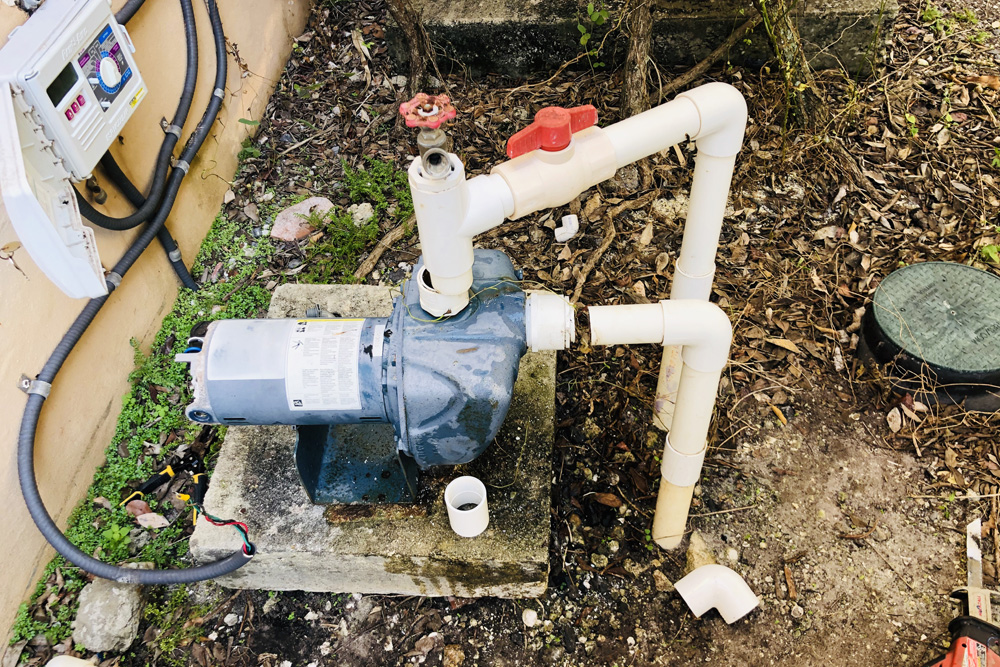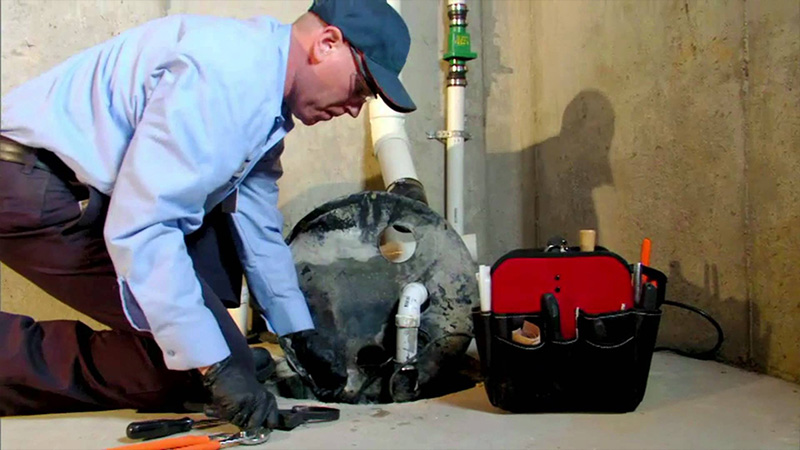Understanding the Key Components of Effective Water Purification Equipments

Value of Water Purification Solution
Water filtering systems play a vital function in making certain access to safe and clean drinking water by successfully getting rid of impurities and contaminations. These systems are essential in dealing with the expanding issues over water top quality and the possible health and wellness threats related to eating polluted water. By making use of numerous purification systems such as reverse osmosis, triggered carbon, and UV sterilization, water filtration systems can efficiently remove unsafe compounds like microorganisms, infections, heavy metals, and chemicals from the water supply.
Additionally, water filtration systems aid to boost the preference and odor of water by removing chlorine, debris, and other contaminants that can influence its high quality. Well Pump Replacement. This improvement in water top quality not only makes it much more tasty however additionally urges people to consume an adequate amount of water daily, advertising far better hydration and total wellness
Sorts Of Filtration Components

Physical filters are designed to literally strain out pollutants from the water. These filters can be constructed from products like ceramic, carbon, or perhaps sand, and they function by trapping particles larger than the filter's pores as water travels through.
Chemical filters utilize various chemical processes to get rid of contaminants from the water. Instances include activated carbon filters, which adsorb impurities, and turn around osmosis membrane layers, which utilize pressure to separate pollutants from the water.
Organic filters make use of living microorganisms like algae or bacteria to damage down raw material and toxins in the water. These filters are frequently used in wastewater treatment plants or all-natural water purification systems.
Understanding the various types of filtering elements is essential for picking the most suitable water filtering system for certain filtration demands.
Feature of Sediment Filters
Sediment filters play an essential role in water filtration systems by effectively catching strong fragments suspended in the water. These filters are generally the first line of protection in a filtration system, eliminating bigger particles such as sand, silt, dirt, and corrosion prior to the water relocates with finer filtering phases. By capturing these sediments, the filters prevent them from getting to downstream components, thus extending the life-span and performance of the whole system.
The feature of debris filters is crucial in preserving water top quality and protecting sensitive devices from damages created by particles. Additionally, by removing visible bits, debris filters boost the clearness and taste of the water. Regularly cleansing or changing debris filters is important to make certain optimum performance. Ignoring this maintenance can bring about obstructing, decreased water flow, and jeopardized purification effectiveness. Generally, debris filters are important components that contribute substantially to the performance of water purification systems.
Function of Triggered Carbon Filters
Playing a vital role in water filtration systems, triggered carbon filters contribute in removing impurities and pollutants from the water system. These filters are developed to adsorb and trap a vast variety of pollutants, consisting of chlorine, volatile organic substances (VOCs), chemicals, go to my site and herbicides. The activated carbon material has a large surface, permitting the effective capturing of contaminants through a procedure called adsorption. As water goes through the filter, the activated carbon holds and brings in onto the impurities, making sure that the water that comes out on the other side is cleaner and more secure for intake.
Triggered carbon filters are very reliable at improving the taste and odor of water by decreasing chemicals that can impact its top quality. Due to their Find Out More flexibility and reliability, triggered carbon filters are a key element in making certain that water is cleansed to the greatest requirements before getting to consumers.
Understanding Reverse Osmosis Systems
Reverse osmosis systems are innovative water filtration systems that employ an innovative procedure to get rid of impurities and pollutants from drinking water. These systems work by using pressure to the water, compeling it with a semi-permeable membrane.
One key benefit of reverse osmosis systems is their ability to eliminate a large array of impurities, including heavy steels, dissolved bacteria, infections, and solids. This makes them very efficient in enhancing the general top quality and safety of alcohol consumption water. Additionally, reverse osmosis systems are fairly low-maintenance and can be mounted under the sink or in a central purification system, offering convenient access to clean water throughout the household. On the whole, recognizing exactly how reverse osmosis systems function can aid people make educated choices concerning their water purification demands.
Verdict
In verdict, reliable water filtration systems are important for making certain risk-free and tidy alcohol consumption water. By recognizing the feature and function of each element, people can make informed decisions when selecting a water purification system.
Water purification systems play an important role in guaranteeing access to clean and secure alcohol consumption water by successfully removing pollutants and contaminants. By utilizing numerous filtration systems such as reverse osmosis, activated carbon, and UV sterilization, water filtering systems can efficiently remove hazardous materials like bacteria, viruses, hefty steels, and chemicals from the water supply.
Debris filters play an official website important role in water purification systems by effectively capturing solid fragments put on hold in the water (Well Pump Replacement).Playing an important duty in water purification systems, triggered carbon filters are instrumental in getting rid of impurities and pollutants from the water supply.Reverse osmosis systems are advanced water filtration systems that employ a sophisticated process to get rid of impurities and impurities from alcohol consumption water